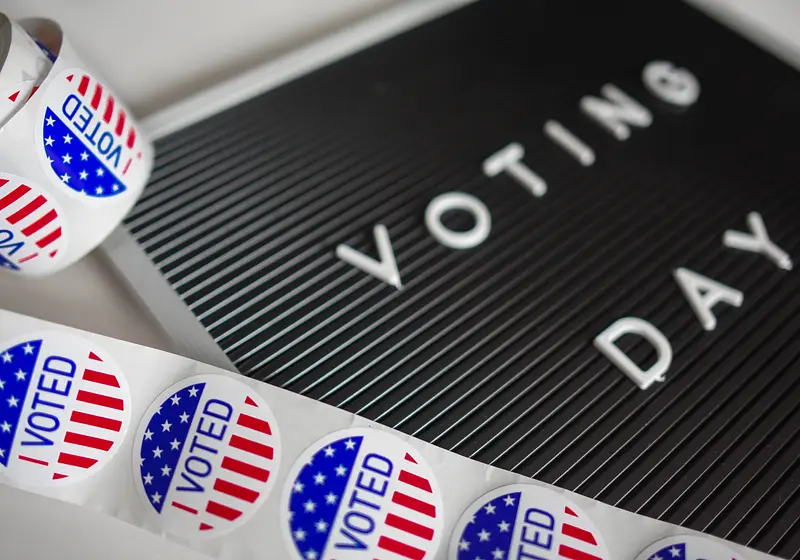As the United States gets ready for the 2024 presidential election, a big question is whether former President Donald Trump should be allowed to run again.
The events of January 6, 2021, when the Capitol was attacked, are still fresh in our minds. Trump's role in encouraging the insurrection makes us wonder if he should be eligible to be president.
A part of the Constitution called Section 3 of the 14th Amendment might have the answer.
Storming of the Capitol
Congress was called for a joint session to count and confirm the 2020 Presidential Election votes. Donald Trump lost the election to his Democratic opponent, Joe Biden.
The 2020 elections took place during a critical point, namely during the COVID-19 elections. For the sake of public health and safety, election officials implemented changes to election procedures, which led many Republicans and Trump's campaign to allege that the democratic party was planning to "rig" the election.
Even after the election, Trump continued with his false allegations of the Democratic party cheating, which continued for weeks. Naturally, this led to his supporters believing this narrative and deciding to take matters into their own hands.
Congress had been called for a joint session to count and confirm the 2020 Presidential Election votes. Donald Trump had lost the election to his Democratic opponent, Joe Biden.
The 2020 elections took place during a critical point, namely during the COVID-19 elections. For the sake of public health and safety, election officials implemented changes to election procedures, which led many Republicans and Trump's campaign to allege that the democratic party was planning to "rig" the election.
Even after the election, Trump continued with his false allegations of the Democratic party cheating, which continued for weeks. Naturally, this led to his supporters believing this narrative and deciding to take matters into their own hands.
Trump took to Twitter (now X) to encourage his supporters to attend a rally near the White House. In his speech, he continued the false narrative that the democratic party had rigged the election. He then also urged them to "walk down Pennsylvania Avenue" to the Capitol building while also saying, "fight like [censored]."
The mob arrived at the Capitol building and quickly pushed through fences of the Capitol grounds, forcing security officers to retreat. The mob only grew larger and turned violent. Officers were harmed, and the government building was vandalized.
In January 2021, the House of Representatives impeached Trump for incitement of insurrection or encouraging violent acts against authority or the government. Unfortunately, Trump was later found not guilty.
Donald Trump has faced another criminal case, namely falsifying business records, as well as other criminal cases.
You can read more about the criminal cases involving Donald Trump here.
Let us slide into your dms 🥰
Get notified of top trending articles like this one every week! (we won't spam you)The 14th Amendment
For those that don't know, the Fourteenth Amendment was created in July 1868 amidst the Civil War in the U.S. It granted citizenship and equal civil and legal rights to anyone born in the United States or gained citizenship, including African Americans who had just been freed.
Of course, we know now that segregation still plagued the nation; therefore, canceling out the keyword "equal," I digress.
However, Section 3 of the Amendment prohibits anyone who had participated in a rebellion against the government (while they were in office) from holding a state or federal office (again). This is in reference to any former member of the Confederacy not being allowed to hold office after the Civil War.
Take the Quiz: Which Indian city is the perfect holiday spot for you!?
Let's match you with an Indian city that you would love!
Should Section 3 Still Apply?
Several lawsuits have been filed to try to block Trump from being on the 2024 ballot, claiming that his involvement in the Capitol riot constitutes engaging in insurrection. However, these legal battles are complicated. The courts need to decide whether Trump's actions truly meet the definition of insurrection as intended by the 14th Amendment, which is not a straightforward process.
Moreover, the interpretation of what counts as "insurrection" or "rebellion" and whether Trump's actions fit these terms is heavily debated. If a court were to rule that Trump is disqualified, it would be a groundbreaking decision with major political consequences. Many of Trump's supporters might see it as a partisan move to prevent him from running, which could further divide the country.
As of now, no court has officially ruled that Trump is disqualified from running for office under this part of the 14th Amendment. The legal challenges are ongoing, and it may take a long time before a final decision is made, possibly even involving the Supreme Court.
If you'd like to read in more detail about the attempted charges, I'd suggest this article in The Guardian.
If you ask me…
I remain highly impressed by Trump's determination to avoid any accountability and critical questions and his ability to remain ignorant of his wrongdoings.
During the CNN Presidential Debate that occurred on June 27, Trump was asked multiple times if he would respect the results if he lost. While he did manage to steer away to talk about other political issues, at one point, he answered.
He said: "If it's a fair and legal and good election – absolutely."
However, Biden stated: "Not one single court in America said any of your claims had any merit, state or local, none. But you continue to promote this lie about somehow there's all this misrepresentation, all the stealing. There's no evidence of that at all."
There's a lack of faith in many, including myself, that Trump would gracefully accept defeat.
As for being allowed on the ballot, it's interesting how the U.S. can sometimes seem inconsistent with its Constitution. On some points, we're really strict about following it, but on others, it feels like we bend the rules a bit.
This election is a critical turning point, and I believe that Section 3 should be fully enforced.
From my perspective, Trump was fully aware of the impact his words would have on his supporters. He was live tweeting during the Capitol riot trying to give his supporters encouragement.
The riots aside, it is no secret that Trump has an aggressive demeanor, constantly spewing hateful words to a variety of groups and individuals. Even during the 2016 presidential run, there was no end to footage of him expressing rude and unprofessional thoughts both in the political sphere and beyond.
It is very clear that he believes he is legally untouchable, and his mentality is being enabled by being allowed on the ballot.
In summary, while Section 3 of the 14th Amendment could potentially block Trump from running for president in 2024, whether it will actually do so is still uncertain. The outcome will depend on how the courts interpret the Amendment and the results of the current lawsuits challenging his candidacy.











.jpeg)
